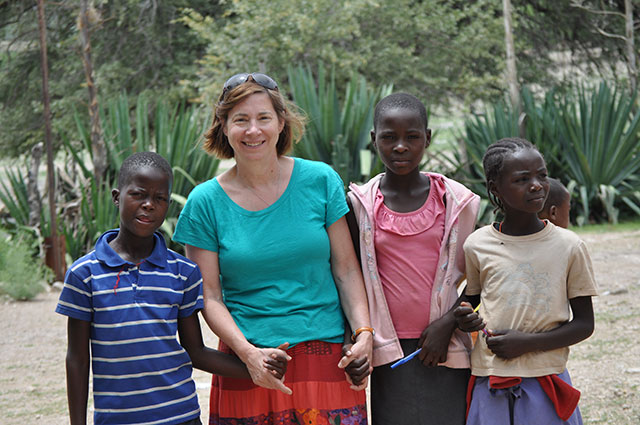Page 116 • (1,691 results in 0.09 seconds)
-

February 11, 2011 For more than a month, geosciences professor Claire Todd and her geosciences student, Michael Vermeulen ’12 lived and worked on the ice in Antarctica. (Photos by Claire Todd) Editor’s Note: For the past two research seasons, Assistant Professor of Geosciences Claire Todd and two students, Mike Vermeulen ’12 and Mathew Hegland ’13 travelled to Antarctica to research climate change among the rocks and ice. Vermeulen went with Todd in the 2010-2011 research season, while Hegland
-

. “Most could not see the Holocaust amidst all the horror,” after the war, Hayes said. Reparations were addressed in the late 1940s and early 1950s. Four things had to change for a surge in reparations Professor Peter Hayes of Northwestern University talks about the long fight for restitution by those who suffered under the Nazis in WWll. Billions have been paid over the last decades, but it took the ending of the Cold War and the power of class action suits to bring justice for some heirs and
-

place and feeling uncertain and at times uncomfortable about being the minority, to instead change focus on being in relationships with their learners, the teachers and staff, local families, our native drivers, the domestic help and others they meet during the two months in a country,” she said. When Weiss returns next January , she will be helping teachers in a country that highly values education, learn to teach in a style that would be familiar to the students at PLU. “Their students (in Namibia
-
on site at all times that students are providing care. Pre- or post-conference, lunch and breaks can be scheduled to meet the learning needs of the students and the healthcare needs of the patients being cared for. Any change from the normal clinical schedule must be communicated in advance to the lead instructor for the course and to the PLU SoN Clinical Coordinator, to determine if the consortium agreement allows a change in the schedule. Precepted clinical experiences (BSN, MSN, DNP) Faculty
-
, staff and other professionals under all circumstances. The student must have the emotional stability to function effectively under stress and to adapt to an environment that may change rapidly without warning and/or in unpredictable ways. The student must be able to experience empathy for the situations and circumstances of others and effectively communicate that empathy. The student must know that his or her values, attitudes, beliefs, emotions, and experiences affect his or her perceptions and
-
, professional, and effective relationships with patients, students, faculty, staff and other professionals under all circumstances. The student must have the emotional stability to function effectively under stress and to adapt to an environment that may change rapidly without warning and/or in unpredictable ways. The student must be able to experience empathy for the situations and circumstances of others and effectively communicate that empathy. The student must know that his or her values, attitudes
-
intellectual abilities, the exercise of good judgment, the prompt completion of all responsibilities attendant to the diagnosis and care of patients and families. In addition, the student must be able to maintain mature, sensitive, tolerant, professional, and effective relationships with patients, students, faculty, staff and other professionals under all circumstances. The student must have the emotional stability to function effectively under stress and to adapt to an environment that may change rapidly
-

wasn’t. I was a hard worker and it was my opinion that hard work would get me where I wanted to go, and where I wanted to go was a very fluid concept,” she said. “I was never concerned with making a choice about what I wanted to be when I grew up, because my parents led me to believe that I could be anything, and it was OK to change your mind as long as you were responsible and gave it a fair shot first. I didn’t know it at the time, but they taught me how to fail forward, so I was never afraid of it
-
work. That all seems very lazy but I wasn’t. I was a hard worker and it was my opinion that hard work would get me where I wanted to go, and where I wanted to go was a very fluid concept,” she said. “I was never concerned with making a choice about what I wanted to be when I grew up, because my parents led me to believe that I could be anything, and it was OK to change your mind as long as you were responsible and gave it a fair shot first. I didn’t know it at the time, but they taught me how to
-
Context (4) FREN 204/404: Postcolonial Francophone Fictions and Criticism (4) FREN 206/406: French/Francophone Feminisms (4) (when the topic is African Woman Writers) HISP 301: Hispanic Voices for Social Change (4) (when taught by PLU faculty on campus) HISP 351: Hispanic Voices for Social Change for Heritage Speakers (4) HISP 322: Latin American Cultural Studies (4) HIST 218: Women and Gender in World History (4) HIST 305: Slavery in the Americas (4) HIST 333: Colonization and Genocide in Native
Do you have any feedback for us? If so, feel free to use our Feedback Form.


